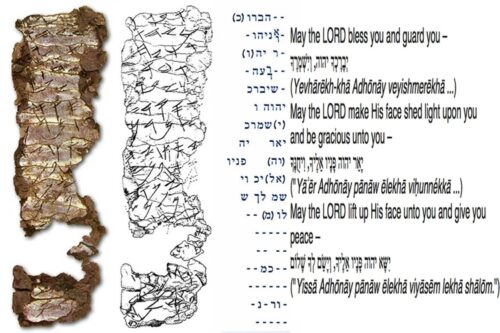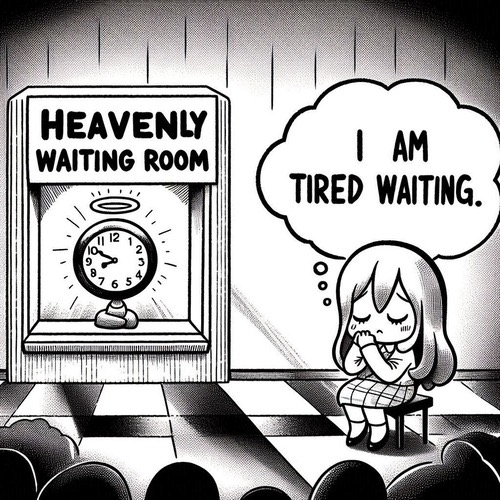Providence Is Peace: How God’s Will Prevails Through Our Mistakes
Ever lost sleep thinking you’ve made a “wrong” choice? Perhaps, you wonder, you’ve chosen the wrong college. Or married the wrong person in haste, or plumped for the wrong career. The gnawing fear whispers: Have I missed God’s will entirely?
This anxiety plagues countless Christians, creating a paralysing fear in making decisions. But the Reformed tradition offers a profound answer that brings genuine peace: God’s sovereign will isn’t thwarted—not even by our mistakes. In fact, Scripture reveals God’s providence works through our failures, not merely despite them.
THE UNSHAKEABLE FOUNDATION: GOD’S ABSOLUTE SOVEREIGNTY
The starting point for understanding divine providence is God’s absolute sovereignty over all things. Isaiah 46:10 declares, “My counsel shall stand, and I will accomplish all my purpose.” This isn’t merely about the “big picture”—God’s sovereignty extends to every detail of history, including our personal decisions.
Paul reinforces this in Ephesians 1:11, explaining God “works all things according to the counsel of his will.” The phrase “all things” is comprehensive—it includes your career choices, relationships, even your failures. Proverbs 19:21 adds, “Many are the plans in the mind of a man, but it is the purpose of the Lord that will stand.”
Reformed theology teaches us God’s eternal decree encompasses every event that ever occurs—from the fall of a sparrow to the rise and decline of nations. Daniel 4:35 reminds us, God “does according to his will among the host of heaven and among the inhabitants of the earth; and none can stay his hand or say to him, ‘What have you done?’”
This doesn’t mean God coerces our choices or that we’re mere puppets. Rather, God works through our willing decisions to accomplish His perfect purposes. John Calvin explained it this way: “We hold that God is the disposer and ruler of all things,—that from the remotest eternity, according to his own wisdom, he decreed what he was to do, and now by his power executes what he decreed.”
DISMANTLING THE “MISSING GOD’S WILL” ANXIETY
The fear of “missing God’s will” rests on a fundamental misunderstanding. Reformed theology distinguishes between two aspects of God’s will:
- God’s Decretive Will: What God has eternally determined will happen. This encompasses every event in history and cannot be violated or missed.
- God’s Preceptive Will: God’s moral commands revealed in Scripture—what we ought to do.
When we worry about “missing God’s will,” we’re actually confusing these categories. We cannot miss God’s decretive will because we’re already part of it. Our choices—wise or foolish—are woven into God’s eternal plan.
But what about God’s preceptive will? Yes, when we disobey God’s moral commands, we face real consequences—both temporal and spiritual. Sin brings discipline, broken relationships, and natural outcomes. David’s adultery led to family turmoil. The prodigal son faced poverty and shame. Disobedience to God’s revealed commands has genuine costs.
However—and this is crucial—even our violations of God’s preceptive will don’t escape His decretive will. God’s sovereignty means He uses even our rebellions to accomplish His purposes. Consider the ultimate example: Christ’s crucifixion. Acts 2:23 reveals it happened “according to the definite plan and foreknowledge of God.” The most heinous violation of God’s preceptive will—the murder of the innocent Son of God—was still within God’s sovereign plan.
This doesn’t minimise sin’s seriousness or remove consequences. But it does demolish the “what if” spiral. Our mistakes don’t surprise God or force Him to implement “Plan B.” As Joseph declared to his brothers who sold him into slavery, “As for you, you meant evil against me, but God meant it for good” (Genesis 50:20). God doesn’t merely work around our failures—He works through them to accomplish His perfect purposes.
HUMAN RESPONSIBILITY WITHIN DIVINE SOVEREIGNTY
Understanding God’s sovereignty doesn’t eliminate human responsibility—it establishes it on firmer ground. Paul captures this balance perfectly: “Work out your own salvation with fear and trembling, for it is God who works in you, both to will and to work for his good pleasure” (Philippians 2:12-13).
We make real choices with real consequences. God holds us accountable for our decisions precisely because they’re genuinely ours. The Westminster Confession wisely states God’s providence works “according to the nature of second causes either necessarily, freely, or contingently.” God doesn’t override our nature—He works through it.
This means we should make decisions thoughtfully and prayerfully. Seek wise counsel (Proverbs 15:22), ask for wisdom (James 1:5), and use the rational faculties God has given us. But not seek mystical signs or wait for an audible voice. God typically guides through Scripture, circumstances, and sanctified reason.
Reformed pastor Tim Keller put it perfectly: “If you are seeking God’s will, the main thing He wants is not for you to figure out the future, but that you take responsibility to live wisely in the present.”
PROVIDENCE IS PEACE: LIVING CONFIDENTLY
Understanding providence brings tremendous freedom. When we trust God’s absolute sovereignty, decision-making anxiety evaporates. We’re free to choose wisely without the crushing fear that one wrong turn will derail God’s plan.
Paul asks the liberating question: “If God is for us, who can be against us?” (Romans 8:31). The answer is no one—not even ourselves. Our lives aren’t a house of cards that one poor decision can topple. It’s held secure in the hands of a sovereign God who wastes nothing.
This doesn’t promote carelessness—quite the opposite. Knowing that God works through our choices motivates us to choose wisely. But it removes the paralysing fear that keeps us from moving forward. When facing the consequences of past decisions, we can trust God’s redemptive purposes rather than wallowing in regret.
PROVIDENCE IS PEACE: RESTING IN GOD WHO WORKS ALL THINGS
God’s plan cannot be thwarted because God Himself isn’t thwarted. Our choices matter deeply within His sovereignty, not outside it. The God who numbers the hairs on our heads (Matthew 10:30) hasn’t overlooked our decisions or their consequences.
Perfect love casts out fear—including the fear of missing God’s will. Isaiah 55:11 promises God’s word “shall not return to me empty, but it shall accomplish that which I purpose.”
So, may we live boldly. Choose wisely. Trust completely. Our mistakes aren’t the end of the story—they’re part of the story God is writing. For His glory and our good. In the hands of a sovereign God, even our failures become instruments of His grace.
Providence is peace because God’s will prevails—not around our mistakes, but through them.
PROVIDENCE IS PEACE: RELATED FAQs
If God controls everything, why pray for specific outcomes? Prayer doesn’t change God’s mind—it’s one of the means through which God accomplishes His predetermined will. John Piper explains “prayer is not overcoming God’s reluctance; it is laying hold of God’s willingness.” We see prayer as both commanded by God and used by God to fulfil His purposes. We pray because God ordains both the ends (His purposes) and the means (including our prayers) to achieve those ends.
- Does divine sovereignty mean I shouldn’t seek wise counsel or make careful decisions? Absolutely not. God’s sovereignty is precisely what makes human effort meaningful, not meaningless. Kevin DeYoung emphasises “God’s sovereignty doesn’t negate human responsibility; it establishes it.” We are to “work heartily, as for the Lord” (Colossians 3:23) precisely because God works through our diligent efforts. Reformed theology sees careful planning, seeking counsel, and using wisdom as acts of faith, not lack of trust in God’s providence.
- How do I know if my suffering is discipline for sin or just part of God’s mysterious plan? Reformed theology distinguishes between God’s corrective discipline for His children (Hebrews 12:5-11) and general suffering in a fallen world. Tim Keller notes “while all suffering serves God’s purposes, not all suffering is punitive.” The key is examining your heart: unconfessed sin may indicate discipline, while suffering amid faithful obedience often serves broader redemptive purposes. Either way, both types of suffering are under God’s sovereign control and work for the good of those who love Him (Romans 8:28).
If everything is predetermined, how does evangelism matter? God ordains both the end (salvation) and the means (preaching the gospel). Charles Spurgeon, the “Prince of Preachers,” was thoroughly Reformed yet incredibly evangelistic, famously saying, “I never have to reconcile friends.” Contemporary theologian Sinclair Ferguson explains “God’s sovereignty doesn’t make evangelism pointless—it makes it confident.” We evangelise because God commands it and because we know He will save His elect through the faithful proclamation of the gospel.
- Can I resist God’s grace if He’s truly sovereign? In the Reformed perspective, saving grace is irresistible—not because it overrides the will, but because it changes the will. RC Sproul explained “God doesn’t drag people kicking and screaming into His kingdom; He changes their wants.” When God regenerates someone, He gives them new desires that freely choose Christ. John MacArthur adds “irresistible grace doesn’t violate human will; it liberates it from the bondage of sin.” Those who resist the gospel are demonstrating God has not yet granted them the grace of regeneration.
- How does God’s sovereignty relate to mental health struggles and anxiety? God’s sovereignty doesn’t eliminate the need for proper medical care, therapy, or medication—these are means of grace through which God brings healing. Reformed psychiatrist Richard Winter argues “acknowledging God’s sovereignty over mental illness doesn’t mean ignoring the biological and psychological factors He uses to heal.” JD Greear emphasises trusting God’s sovereignty can actually reduce anxiety by reminding us our ultimate security rests in God’s hands, and not in our ability to control outcomes. Mental health treatment and trust in providence work together, not against each other.
If God predetermined the Fall, doesn’t that make Him the author of sin? While God ordained sin would enter the world, He is not the efficient cause or author of sin. The Westminster Confession states God’s providence extends to all events “yet so, as thereby neither is God the author of sin, nor is violence offered to the will of the creatures.” Contemporary theologian Paul Helm explains “God permits and ordains sin without being morally responsible for it—He uses secondary causes (human wills) to accomplish His purposes.” This remains a mystery that Reformed theology acknowledges rather than attempts to fully resolve, maintaining both God’s sovereignty and human responsibility.
PROVIDENCE IS PEACE: OUR RELATED POSTS
Editor's Pick

Can Repentance be Real If We Struggle With Habitual Sin?
We’ve been there before. The weight of conviction sinks in as we realise we’ve fallen into the same sin. All [...]
The Ketef Hinnom Scrolls: An Accidental Yet Phenomenal Find
SMALLER THAN OUR PALM, OLDER THAN THE DEAD SEA SCROLLS In 1979, a bored 13-year-old volunteer at an archaeological dig [...]

Caught in Adultery: How Reliable Is the John 8 Story?
"Let him who is without sin cast the first stone." Few Bible scenes capture Jesus' wisdom and grace quite like [...]

What Did the Inscription on Jesus’ Cross Really Say?
A REFORMED RESPONSE TO CLAIMS OF GOSPEL CONTRADICTIONS Sceptics love to point out what they see as a glaring contradiction [...]

Biblical and Systematic Theology: Why Do We Need Both?
TWO LENSES, ONE TRUTH Picture this familiar scene: A seminary student sits in the library, torn between two stacks of [...]

The Mysterious Two: Who Are the Anointed Ones in Zechariah?
Picture this: a golden lampstand blazing with light, flanked by two olive trees that pour oil directly into the lamp’s [...]

Regeneration Or Faith? Which Comes First in Salvation?
In the moment of salvation, does God regenerate our hearts first, or do we believe first? How we answer this [...]

Interracial Marriages: Does God Frown On Them?
The question hits close to home for many Christian couples and families today. As our churches become increasingly diverse, believers [...]
‘Because Angels Are Watching’: What Does 1 Corinthians 11:10 Mean?
“For this reason the woman ought to have authority on her head, because of the angels” (1 Corinthians 11:10, ESV). [...]

Why Does God Torment Saul With An Evil Spirit?
Would a holy God send an evil spirit to torment someone? This theological puzzle confronts us in the biblical account [...]
SUPPORT US:
Feel the Holy Spirit's gentle nudge to partner with us?
Donate Online:
Account Name: TRUTHS TO DIE FOR FOUNDATION
Account Number: 10243565459
Bank IFSC: IDFB0043391
Bank Name: IDFC FIRST BANK








